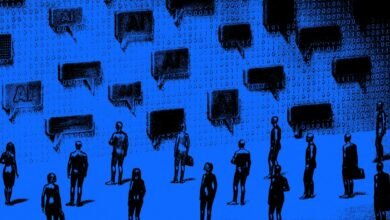Classroom Tech: The Cycle of Hype and Backlash

▼ Summary
– Many fear generative AI in classrooms will harm critical thinking, increase cheating, or make traditional assignments obsolete.
– Similar concerns arose in the past, like in 1975 when calculators were thought to undermine basic math and writing skills.
– The Pessimists Archive documents historical moral panics over technology, such as early 1900s fears that books harmed children.
– Alarmist reactions often stem from cognitive biases and parental anxiety about change rather than concrete evidence.
– Education systems are resistant to radical change, with new tech typically being integrated into existing structures rather than revolutionizing them.
The debate over classroom technology follows a predictable cycle of excitement and resistance, one that reveals more about our fears than the tools themselves. Parents and educators today voice concerns about generative AI undermining writing skills or enabling cheating, yet history shows similar reactions to past innovations. Decades ago, calculators sparked identical worries about math proficiency, with some arguing they’d cripple basic arithmetic while others saw them as liberating tools for deeper learning.
This pattern isn’t new. Moral panics around education technology stretch back centuries, documented in resources like The Pessimists Archive, which tracks societal anxieties tied to progress. In the early 1900s, headlines warned that excessive reading, yes, books, would corrupt young minds, linking novels to everything from declining attention spans to suicide. Each wave of innovation triggers a reflexive backlash, often rooted in broader unease about shifting norms rather than concrete evidence.
Louis Anslow, curator of the archive, notes these reactions expose deep-seated cognitive biases. Resistance to change frequently stems from parental fears about an uncertain future, not the actual risks posed by technology. Schools, meanwhile, rarely transform overnight. Despite bold claims that tools like AI will “revolutionize” learning, education systems tend to absorb innovations slowly, layering them atop existing structures rather than dismantling traditions.
The takeaway? Technological hype and backlash often overshadow a simpler truth: tools are just tools. Their impact depends less on inherent dangers and more on how educators integrate them thoughtfully. Past cycles suggest today’s AI anxieties will likely follow the same arc, initial alarm, gradual adaptation, and eventual normalization. The real challenge isn’t resisting change but navigating it with clarity.
(Source: Wired)
